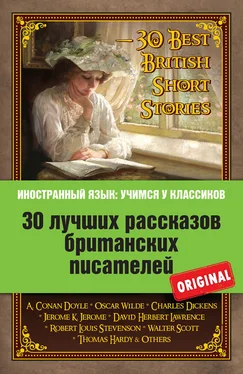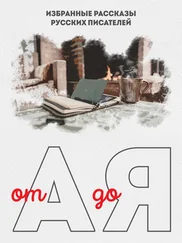In the meantime, its master had proceeded.
‘I’ll go to the inn kitchen,’ he said, in his startling bass, to the drawer who met him in the passage.
And on he went, as if he had known the place all his days: not seeming to hurry himself – stepping leisurely, the servant thought – but gliding on at such a rate, nevertheless, that he had passed his guide and was in the kitchen of the George before the drawer had got much more than half-way to it.
A roaring fire of dry wood, peat and coal lighted up this snug but spacious apartment – flashing on pots and pans, and dressers high-piled with pewter plates and dishes; and making the uncertain shadows of the long ‘hanks’ of onions and many a flitch and ham, depending from the ceiling, dance on its glowing surface.
The doctor and the attorney, even Sir Geoffrey Mardykes, did not disdain on this occasion to take chairs and smoke their pipes by the kitchen fire, where they were in the thick of the gossip and discussion excited by the terrible event.
The tall stranger entered uninvited.
He looked like a gaunt, athletic Spaniard of forty, burned half black in the sun, with a bony, flattened nose. A pair of fierce black eyes were just visible under the edge of his hat; and his mouth seemed divided, beneath the moustache, by the deep scar of a hare-lip.
Sir Geoffrey Mardykes and the host of the George, aided by the doctor and the attorney, were discussing and arranging, for the third or fourth time, their theories about the death and the probable plans of Toby Crooke, when the stranger entered.
The new-comer lifted his hat, with a sort of smile, for a moment from his black head.
‘What do you call this place, gentlemen?’ asked the stranger.
‘The town of Golden Friars, sir,’ answered the doctor politely.
‘The George and Dragon, sir: Anthony Turnbull, at your service,’ answered mine host, with a solemn bow, at the same moment – so that the two voices went together, as if the doctor and the innkeeper were singing a catch.
‘The George and the Dragon,’ repeated the horseman, expanding his long hands over the fire which he had approached. ‘Saint George, King George, the Dragon, the Devil: it is a very grand idol, that outside your door, sir. You catch all sorts of worshippers – courtiers, fanatics, scamps: all’s fish, eh? Everybody welcome, provided he drinks like one. Suppose you brew a bowl or two of punch. I’ll stand it. How many are we? Here – count, and let us have enough. Gentlemen, I mean to spend the night here, and my horse is in the stable. What holiday, fun, or fair has got so many pleasant faces together? When I last called here – for, now I bethink me, I have seen the place before – you all looked sad. It was on a Sunday, that dismalest of holidays; and it would have been positively melancholy only that your sexton – that saint upon earth – Mr. Crooke, was here.’ He was looking round, over his shoulder, and added: ‘Ha! don’t I see him there?’
Frightened a good deal were some of the company. All gaped in the direction in which, with a nod, he turned his eyes.
‘He’s not thar – he can’t be thar – we see he’s not thar,’ said Turnbull, as dogmatically as old Joe Willet might have delivered himself – for he did not care that the George should earn the reputation of a haunted house. ‘He’s met an accident, sir: he’s dead – he’s elsewhere – and therefore can’t be here.’
Upon this the company entertained the stranger with the narrative – which they made easy by a division of labour, two or three generally speaking at a time, and no one being permitted to finish a second sentence without finding himself corrected and supplanted.
‘The man’s in Heaven, so sure as you’re not,’ said the traveller so soon as the story was ended. ‘What! he was fiddling with the church bell, was he, and d–d for that – eh? Landlord, get us some drink. A sexton d–d for pulling down a church bell he has been pulling at for ten years!’
‘You came, sir, by the Dardale-road, I believe?’ said the doctor (village folk are curious). ‘A dismal moss is Dardale Moss, sir; and a bleak clim’ up the fells on t’ other side.’
‘I say “Yes” to all – from Dardale Moss, as black as pitch and as rotten as the grave, up that zigzag wall you call a road, that looks like chalk in the moonlight, through Dunner Cleugh, as dark as a coal-pit, and down here to the George and the Dragon, where you have a roaring fire, wise men, good punch – here it is – and a corpse in your coach-house. Where the carcase is, there will the eagles be gathered together. Come, landlord, ladle out the nectar. Drink, gentlemen – drink, all. Brew another bowl at the bar. How divinely it stinks of alcohol! I hope you like it, gentlemen: it smells all over of spices, like a mummy. Drink, friends. Ladle, landlord. Drink, all. Serve it out.’
The guest fumbled in his pocket, and produced three guineas, which he slipped into Turnbull’s fat palm.
‘Let punch flow till that’s out. I’m an old friend of the house. I call here, back and forward. I know you well, Turnbull, though you don’t recognize me.’
‘You have the advantage of me, sir,’ said Mr. Turnbull, looking hard on that dark and sinister countenance – which, or the like of which, he could have sworn he had never seen before in his life. But he liked the weight and colour of his guineas, as he dropped them into his pocket. ‘I hope you will find yourself comfortable while you stay.’
‘You have given me a bedroom?’
‘Yes, sir – the cedar chamber.’
‘I know it – the very thing. No – no punch for me. By and by, perhaps.’
The talk went on, but the stranger had grown silent. He had seated himself on an oak bench by the fire, towards which he extended his feet and hands with seeming enjoyment; his cocked hat being, however, a little over his face.
Gradually the company began to thin. Sir Geoffrey Mardykes was the first to go; then some of the humbler townsfolk. The last bowl of punch was on its last legs. The stranger walked into the passage and said to the drawer:
‘Fetch me a lantern. I must see my nag. Light it – hey! That will do. No – you need not come.’
The gaunt traveller took it from the man’s hand and strode along the passage to the door of the stable-yard, which he opened and passed out.
Tom Scales, standing on the pavement, was looking through the stable window at the horses when the stranger plucked his shirtsleeve. With an inward shock the hostler found himself alone in presence of the very person he had been thinking of.
‘I say – they tell me you have something to look at in there’ – he pointed with his thumb at the old coach-house door. ‘Let us have a peep.’
Tom Scales happened to be at that moment in a state of mind highly favourable to anyone in search of a submissive instrument. He was in great perplexity, and even perturbation. He suffered the stranger to lead him to the coach-house gate.
‘You must come in and hold the lantern,’ said he. ‘I’ll pay you handsomely.’
The old hostler applied his key and removed the padlock.
‘What are you afraid of? Step in and throw the light on his face,’ said the stranger grimly. ‘Throw open the lantern: stand there . Stoop over him a little – he won’t bite you. Steady, or you may pass the night with him!’
* * *
In the meantime the company at the George had dispersed; and, shortly after, Anthony Turnbull – who, like a good landlord, was always last in bed, and first up, in his house – was taking, alone, his last look round the kitchen before making his final visit to the stable-yard, when Tom Scales tottered into the kitchen, looking like death, his hair standing upright; and he sat down on an oak chair, all in a tremble, wiped his forehead with his hand, and, instead of speaking, heaved a great sigh or two.
Читать дальше
Конец ознакомительного отрывка
Купить книгу












